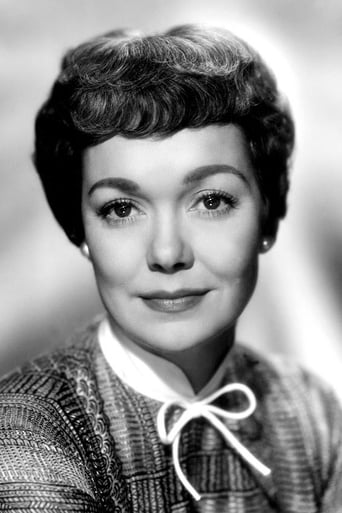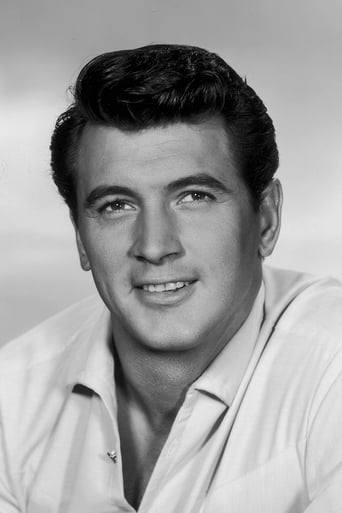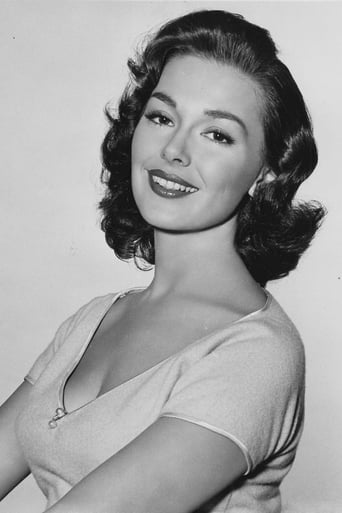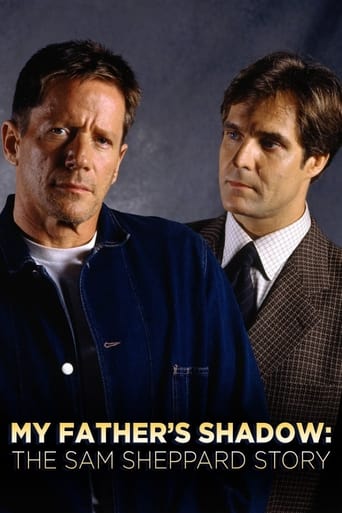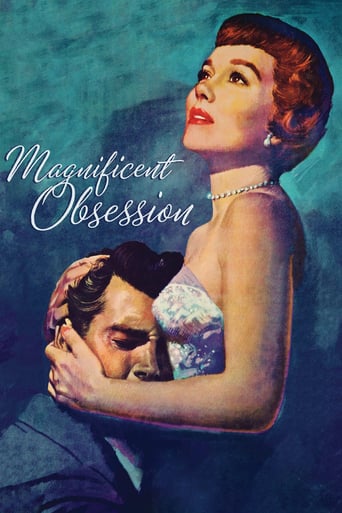
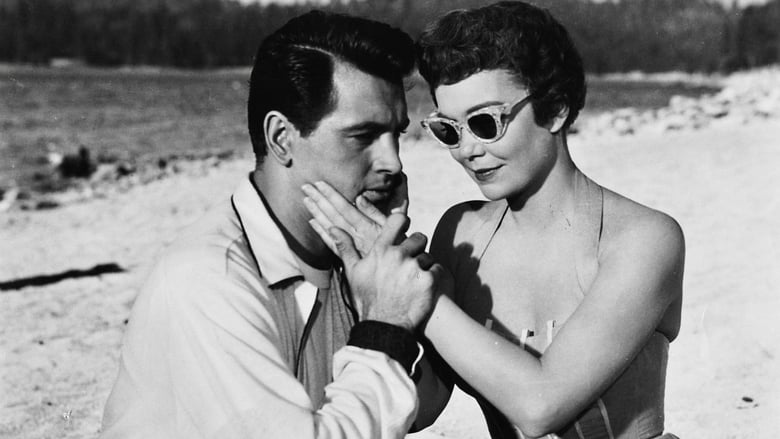
Magnificent Obsession (1954)
Reckless playboy Bob Merrick crashes his speedboat, requiring emergency attention from the town’s only resuscitator while a local hero, Dr. Phillips, dies waiting for the life-saving device. Merrick then tries to right his wrongs with the doctor’s widow, Helen, falling in love with her in the process.
Watch Trailer
Cast


Similar titles
Reviews
I did something really insane last night: I took out of the local library The Criterion Collection of "Magnificent Obsession" thinking I was only getting the 1954 remake. However when I got home I discovered I had both versions, Jane Wyman's and Irene Dunne's 1935 original. Now this is where I ought to have my head examined because I decided to watch both movies one right after the other! I am still reeling. Here's the plot: Helen is married to a doctor who dies because medical equipment that could have saved him was unavailable because it was being used to resuscitate selfish playboy Bob Merrick. When Bob tries to make it up to Helen he inadvertently causes her to have an accident which blinds her! Hopelessly in love with our sightless heroine Bob decides to go to medical school to become a surgeon so he can perform the operation that will restore her sight! I am not making any of this nonsense up. Though I love Irene Dunne the Jane Wyman remake is the better of the two films not so much for Jane (Hollywood's dullest leading lady) but for Douglas Sirk's lush direction and an over the top musical score. Plus you get to see a gorgeous Rock Hudson naked from the waist up! This is sheer movie lunacy but if you must watch do yourself a favor and only view one of them at a time! Otherwise you risk losing your mind. I almost lost mine!
The whole plot to this thing is so contrived that from the get go it's not going to work. A man gets saved from a reckless act at the expense of another man's life. He then woos the guys widow. Filled with guilt he goes to medical school. He begins to learn about things she can do to help others. The wife goes blind. Hmmmm! I wonder what is going to happen. The thing that is missing is the ability to bring the husband back from the dead. I know I'm being sarcastic, but there are so many lame plotting contrivances and virtual impossibilities here, and the sappy conclusion. I'm sure this all played well with people who want a happy ending at all costs, including believability. Rock Hudson was a handsome guy and Jane Wyman was also a good actress. Too hokey for my tastes, however.
During the 1950s director Douglas Sirk was noted both for his accomplished use of colour and for the melodramatic nature of his plots in films like "Magnificent Obsession", "Written on the Wind", "All that Heaven Allows" and "Imitation of Life". "Magnificent Obsession" was a remake of a film from 1935, which I have never seen; both films are based upon a novel of the same name by Lloyd C. Douglas. The story is an essentially religious account of one man's redemption. The main character, Bob Merrick, starts off as a spoiled wealthy playboy, but eventually reforms, resumes his medical studies (which he abandoned when inherited his family fortune upon his father's death) and ends up as a brilliant surgeon, widely admired not only for his surgical skills but also for his kindness and philanthropy. A key figure in Merrick's redemption is Wayne Phillips, another brilliant surgeon, widely admired not only for his surgical skills but also for his kindness and philanthropy. In the 1935 film the doctor had the surname "Hudson", but this was changed to "Phillips" when Rock Hudson was cast as Merrick in this film, presumably because the studio felt that it would be confusing to have a character sharing a name with one of the film's stars. The more recent "Margot at the Wedding" is another example of the same phenomenon; it was originally to have been called "Nicole at the Wedding", but the name of the main character was changed when Nicole Kidman was cast in the role. Hudson seems to have been a favourite actor of Sirk, who used him in starring roles not only here but also in "Written on the Wind" and "All that Heaven Allows". Merrick never meets Dr Phillips, who does not actually appear in the film and who dies near the beginning, but both he and the audience hear a lot about the late doctor from his friends and family. According to them Dr. Phillips both preached and practised a philosophy of altruism, believing that to achieve anything worthwhile in life one needs to do good to others without hoping for anything in return, either in terms of financial reward or in terms of reputation. Hollywood may sometimes preach a gospel of altruism, but it has more difficulty practising it, and it has never been entirely comfortable with the doctrine that virtue is its own reward. Surely it must bring some more tangible rewards as well? Although, therefore, we never get to see Dr Phillips, we do get to see his house, and it turns out to be a magnificent lakeside villa, the sort of house I would more readily associate with the Bob Merricks of this world than with a self- sacrificing humanitarian who supposedly died relatively poor because of his generosity to others. An important factor in Merrick's transformation is the romance which develops between him and Phillips's widow Helen. I think that we are supposed to assume that Helen is considerably younger than Phillips, who had an adult daughter by a previous marriage, but nevertheless significantly older than Merrick. Rock Hudson was Hollywood's resident toyboy of the fifties and early sixties. At a time when "boy meets girl" usually meant "older man meets girl young enough to be his daughter", Hudson was regularly cast as the love-interest of actresses older than himself. Sometimes the age difference was only a minor one, as in his series of comedies with Doris Day, but sometimes it was more significant as with Jennifer Jones in "A Farewell to Arms" or with Jane Wyman here. (Hudson and Wyman were also cast together in "All that Heaven Allows"). Sirk's work is characterised by careful composition of his images and his accomplished use of colour. His backgrounds are generally muted and dominated by greys and browns, but there is generally a prominent, brightly-coloured object in the foreground. In "Written on the Wind" this object is normally red, yellow or green, which gives a certain stylistic unity to that film, but here he uses colour more indiscriminately, with blues and purples also much to the fore. Despite Sirk's skill as a director, "Magnificent Obsession" is not a favourite of mine. The plot is excessively melodramatic and sentimental, too heavily reliant on coincidence and at times too improbable to be credible. The worst development comes when Merrick woos Helen, who has been blinded in an accident, under a false name without her (at first) realising his true identity and without any of her friends betraying his secret. Even more improbably she falls in love with a man whom she previously disliked, even though he was partly to blame for her accident. Special mention should be made of Frank Skinner's dreadful musical score, all lushly swooping strings and quasi-angelic choirs chanting "Ah-ah-ah", which intensifies the general atmosphere of corny sentimentality. In some of his films, such as "Written on the Wind" or "Imitation of Life", Sirk showed that he was capable of transforming melodrama into art. But not here. 5/10
Douglas Sirk is often praised some 50 years after his career ended for being one of the most subversive and bittersweet of Hollywood directors of the 1950s. Born in Germany, he began his film career in the German cinema, only to flee when the Nazis took control. By the mid 1940s, he was a full-fledged Hollywood director assigned by studios to churn out as many films as possible. However, even after all these years, it is clear that like fellow immigrant directors Billy Wilder and Ernst Lubitsch, there was a dark undertone in all of Sirk's works that continues to amaze today.The first of Sirk's most well-known films was Magnificent Obsession, a glossy Technicolor melodrama that on the surface appears to be as soapy and exploitative as any daytime television drama. However, many critics and scholars in recent years have instructed us to look closer, to try and understand the hidden meanings and undertones of such a story. Clearly, it is obvious that Sirk used such a decor and platform as that was what he was given to work with. Melodramas were becoming quite popular in the 1950s, this itself being a reflection of the growing artifice and superficial decadence that would come to characterize postwar America. Sirk, being a European immigrant, would know and recognize this better than almost anyone. Therefore, he brilliantly used American settings, characterizations and story lines to subject to American audiences the very ideas and social graces he saw through. Just as expected, people fell for the bait and came in droves to witness what they though was simply a tearjerker exploring the relationship between a spoiled rich playboy and a well-meaning widow of a revered doctor.Though it may be impossible to truly grasp all of Sirk's secrets after just one viewing, it seems to me that one of the critiques most notable here is the motivation these characters possess. Another reviewer described this film as a quest for spirituality. Redemption and understanding may also be added to this list as nearly all of these characters attempt to find consolation and faith in things that reflect their own artificial emotion and feelings. Do any of these characters truly have a moral center that guides their everyday actions? Or are they simply living out of guilt, fear, jealousy and self-loathing? These are loaded questions to be sure, but the more I write the more I am convinced that Magnificent Obsession is a loaded film.


